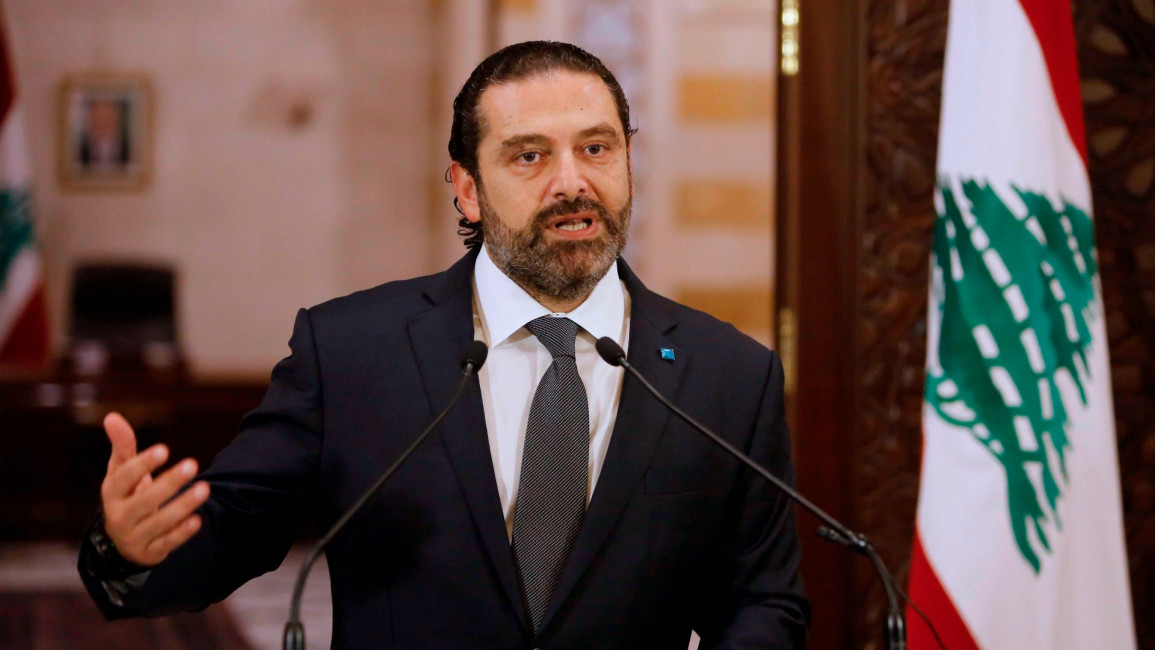French, US envoys discuss Lebanon in Riyadh amid rumours of Hariri’s resignation
The French and US ambassadors to Lebanon visited Saudi Arabia on Thursday to discuss the humanitarian situation in Lebanon and the urgency of enacting political reforms.
According to a statement on the US embassy website, US ambassador Dorothy Shea discussed "the importance of humanitarian assistance to the Lebanese people," as well as support for the Lebanese military. The French embassy said the officials discussed the formation of a new government in Lebanon that can enact "necessary reforms."
The visit comes at a precarious time for Lebanon, which is in the throes of an economic crisis deemed by the World Bank to be among the "top three" crises since the 1850s.
On Tuesday, outgoing Prime Minister Hassan Diab pleaded with the international community to send aid, as he warned Lebanon was on the brink of a "social explosion." Two days later on Thursday, the Lebanese lira hit a historic low, trading at 18,500 lira to the US dollar on the black market.
The international community has held off on providing non-humanitarian aid to Lebanon until it can form a new government and pass political and economic reforms. The country has been led by a caretaker government since the previous one resigned in the wake of the August 4, 2020 Beirut port blast.
Former Prime Minister Saad Hariri was tasked with forming a new government in the autumn of 2020, but until now has failed to do so. Political disagreements between Hariri on one side and Lebanese president Michel Aoun and his parliamentarian son-in-law Gebran Bassil have led to a stalemate.
Resignation 'on the table'
As Western ambassadors convened in Saudi Arabia, rumours swirled in Beirut that Hariri might finally be throwing in the towel. Local media outlets speculated that the prime minister-designate was soon to resign, and was merely waiting for Saudi approval of his successor.
This would not be the first time that Hariri has threatened to resign. A month earlier, Hariri indicated that resignation was on the table in a move meant to pressure his rivals and publicly signal his exasperation at continued gridlock.
It's unclear whether Hariri will in fact resign this time around, but if he does, the retreat from politics will likely only be temporary.
"If Hariri resigns, we have to support Saad to be renominated, but with a clear mandate this time," Nicolas Nahas, a member of Lebanese parliament and former Minister of Economy and Trade, told The New Arab.
In the immediate aftermath of his resignation, both Aoun and Bassil would be the apparent winners of the now nine-month long stalemate and would be more able to shape the new government as they please.
However, in the context of the always shifting Lebanese 'Game of Thrones', the relevance of forming a new government is declining, according to Nahas, as the March 2022 elections are just seven months away.
A resignation could allow Hariri to wash his hands of the current political stalemate and put some distance between him and the largely dysfunctional caretaker government. He could then consolidate his support and prepare for the upcoming elections.
A distant Gulf
The main agenda on the French and US ambassadors’ visits to Saudi Arabia was aid, both humanitarian and military. Saudi Arabia has generally disengaged from the country in the last four years, displeased with what it sees as a country which has fallen under Iran's influence.
The Western diplomats' visit to the Gulf monarchy could be an attempt to urge Saudi Arabia to play a bigger role in helping Lebanon through its crisis.
"The Americans want the Saudis to contribute to the Lebanese military, but they will not," Dr. Hilal Khashan, a political science professor at the American University of Beirut, told The New Arab. "The Saudis believe that the [Lebanese] army is an extension of Hezbollah," Khashan explained.
The Saudi view of the Lebanese military runs counter to that of the West, which generally views the Lebanese army as a counterbalance to Hezbollah in the south of the country. To that end, Western countries and specifically the US, have given billions in aid and equipment to the army.
Recently, Western states led by France stepped up calls for aid to the Lebanese military as the body faces severe financial difficulties.
Due to the plunging value of the lira, salaries have dropped to as low as $80 a month and the army relies on food donated from foreign countries to feed its soldiers. The head of the military, Joseph Aoun, has called for increased international aid to "ease the suffering and the economic woes" of Lebanese soldiers.
However, thus far it appears as if Saudi Arabia remains unconvinced that increased aid to Lebanon, let alone the military, is in its interests.
"The Saudis will not contribute to any effort as long as Hezbollah is the dominant force in Lebanon," Khashan said. Instead, they will wait for the collapse of the country and its current ruling system, so that the country "can be relaunched along new lines," he added.


![President Pezeshkian has denounced Israel's attacks on Lebanon [Getty]](/sites/default/files/styles/image_684x385/public/2173482924.jpeg?h=a5f2f23a&itok=q3evVtko)



 Follow the Middle East's top stories in English at The New Arab on Google News
Follow the Middle East's top stories in English at The New Arab on Google News


